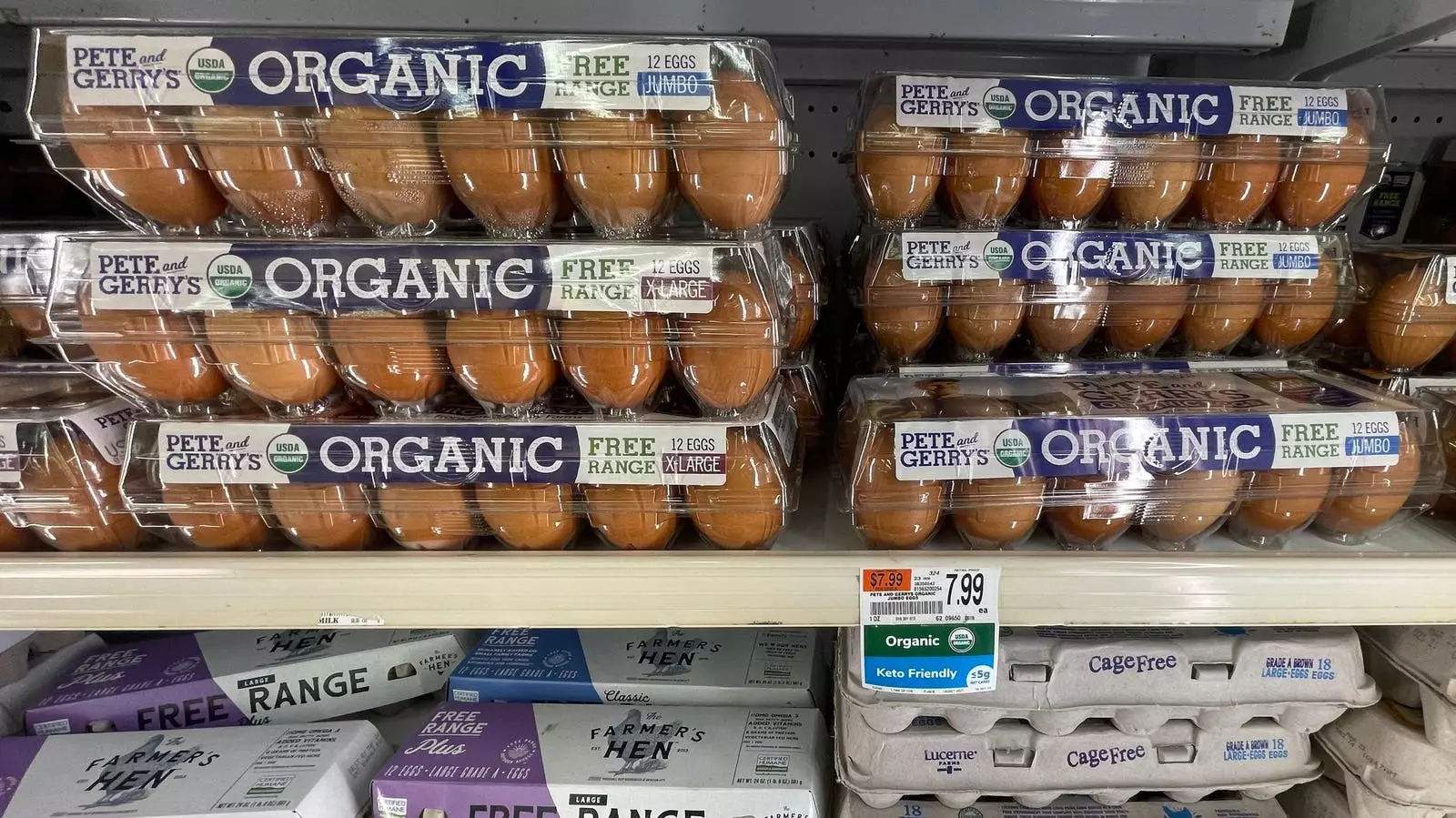Historically regarded as a staple in American households, eggs have always held a reliable position in our kitchens. Whether whisked into a cake, fried for breakfast, or turned into comforting egg salad, their presence was largely taken for granted. However, in recent times, a shocking transformation has occurred—a shift that highlights the increasing value and vulnerability of even the most ordinary food items. The theft of 100,000 organic eggs in Pennsylvania, valued at an astounding $40,000, marks a tipping point in how we view food security and the challenges facing our supply chains.
This incident, which might seem bizarre at first glance, reflects a broader crisis in the food system. The rise in egg prices—exceeding $8 a carton—point to severe supply chain disruptions and economic pressures that have fundamentally altered our relationship with food. Today’s eggs epitomize a larger trend where essential dietary components are no longer mere groceries but are evolving into commodities worth stealing.
The figures paint a dire picture: cargo theft incidents have surged by 27% in the U.S. and Canada, impacting commodities ranging from avocados to eggs and nuts. The systematic targeting of consumable goods indicates a substantial vulnerability in our food distribution networks, making them attractive prey for thieves. The heist at Pete & Gerry’s Organic Eggs is not merely an isolated event but part of a worrying pattern in which food is being viewed through a criminal lens—an invasion of what we once perceived as security in our daily lives.
This grim scenario does not just signify a loss of eggs; it symbolizes the fragility of our entire food supply chain. Egg production has faced widespread challenges due to avian flu outbreaks and labor shortages, which have become commonplace in recent years. As a result, prices have skyrocketed, and ordinary items have transformed characteristics—demanding protection and becoming potential targets for theft. The porous nature of our food transit systems underscores systemic flaws that must be addressed.
The act of stealing food may seem like an extreme manifestation of desperation, but it reveals a critical nexus between food security, economic stability, and social order. Globally, we have witnessed a series of food heists that stretch beyond eggs. Notable cases include the historic Great Canadian Maple Syrup Heist, where six million pounds of syrup were stolen, and California’s notorious nut heist, where millions of dollars worth of almonds were pilfered from distribution centers. These high-profile incidents speak volumes about the increasing intricacies of food theft, which now targets staples that were once seen as untouchable.
As prices continue to rise and the cost of living escalates, consumers are left pondering the future of household grocery bills—if thieves are willing to take truckloads of eggs, what’s next? This is not merely a question of theft; it’s an inquiry into the precarious state of food availability in an age marked by inflation and increased volatility.
The broader implications of the egg heist are significant. They require not only a re-evaluation of food security but also challenge our appreciation of what constitutes a reliable food supply. No longer can we take the availability of staples for granted; they are now woven into the fabric of economic uncertainty and supply chain complexity. In a world of unpredictability, the question arises: What do we value more—economic stability or food safety?
As we navigate the repercussions of this shift, it is crucial for both consumers and producers to develop a greater awareness of the vulnerabilities in our food systems. Collaborating on solutions, whether through enhanced security measures or raising awareness about ethical sourcing and consumption, is essential to ensure that our future is not characterized by fear and instability surrounding our basic needs.
The staggering observation that basic food items, such as eggs, are vulnerable to heist and exploitation should prompt immediate dialogue around food security strategies. As Pete & Gerry’s deals with the fallout of its recent theft, the industry as a whole must reconsider how to protect food resources from theft.
Consumers must also shift their expectations, embracing a more mindful approach to consumption that acknowledges the complexities involved in food production and supply. With the past as a lesson, we are challenged to transform our interactions with food—from seeing it merely as sustenance to understanding its broader implications within our economy and society. The egg, a simple breakfast ingredient, now carries a significant weight on the scales of economic, social, and political discourse.


Leave a Reply